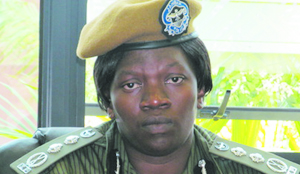POLITICAL violence has become a big problem in recent years, putting a dent on Zambia’s positive reputation as a peaceful nation, more so that it is now a regular occurrence during by-elections.
Mangango, a remote area in Western Province, will be hosting by-elections on August 19, which is only a few days away but it is saddening that violence is occurring at a worrying rate.
Clashes between rival political camps all preparing for the by-election have already been recorded – just as been the norm in past by-elections.
This re-occurrence shows that campaigns by stakeholders, particularly the Electoral Commission of Zambia (ECZ), against violence have not yielded the desired results.
The costs associated with electoral violence are very high and undesirable.
Even in situations in which the human death toll remains low, electoral violence may have an impact on the electoral process, the outcome of the elections and their perceived legitimacy.
In the long run, it may have a negative effect on the prospects for the consolidation of democracy and on percep¬tions among the population as a political system.
Electoral violence may also create a humanitarian crisis and halt or reverse socio-economic development programmes. In extreme situations, it may increase the risk of armed conflict or civil war.
Although an extreme case, election violence can also go beyond the societies where it occurs and affect neighbouring states by displacing large populations, introducing a humanitarian crisis, and
increasing the circulation of arms, which may contribute to instability in already volatile areas.
It is vital for the ECZ and political players to revise their strategies to curb violence based on the principle of implementing conflict-prevention policies and strategies in advance, as opposed to
post, ad hoc, reactionary measures.
Among others, there is need to establish systems to monitor, prevent, mitigate and manage election violence throughout the electoral cycle before, during and after elections.
Electoral violence is not limited to overt and large-scale physical violence, but includes other coercive means such as threats of violence, intimidation and harassment.
By and large acts of violence cause unrest among members of the public, especially women and children, hence this issue needs to be tackled with the urgency it deserves.
The onus should not only be left to the ECZ alone, as political parties equally need to take a large share of responsibility as well.
The tendency to ferry supporters from other regions to boost support during campaigns is in itself not a bad strategy during an election but what is unhealthy is the violence that unfolds from the hoard of supporters, mainly youths.
Youthful members that form the large population of political parties are vital in the process of addressing the advent of political violence. These need to be engaged and sensitised so that they become torch-bearers against acts of violence.
Security wings, especially the police are other important personnel in fighting violence during elections.
It is pleasing that Inspector-General of Police Stella Libongani was in Mangango to put things in order and ensure vigilance levels were high among police officers deployed in the area.
Ms Libongani’s message was clear, that police need to act to ensure peaceful campaigns replace violence and other evil acts associated with rivalry.
More than 80 paramilitary officers have been deployed in Mangango to ensure law and order. The IG has strongly warned that anyone engaging in violence would be dealt with.
Law and order should prevail in Mangango so that the by-elections are held in a peaceful atmosphere.







